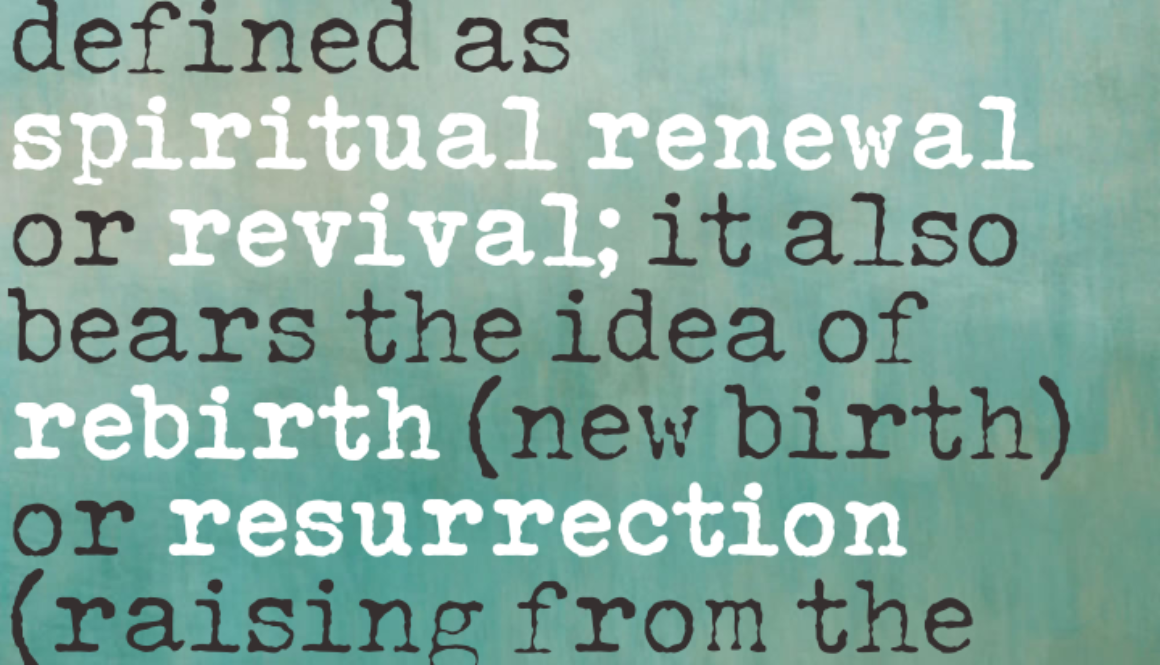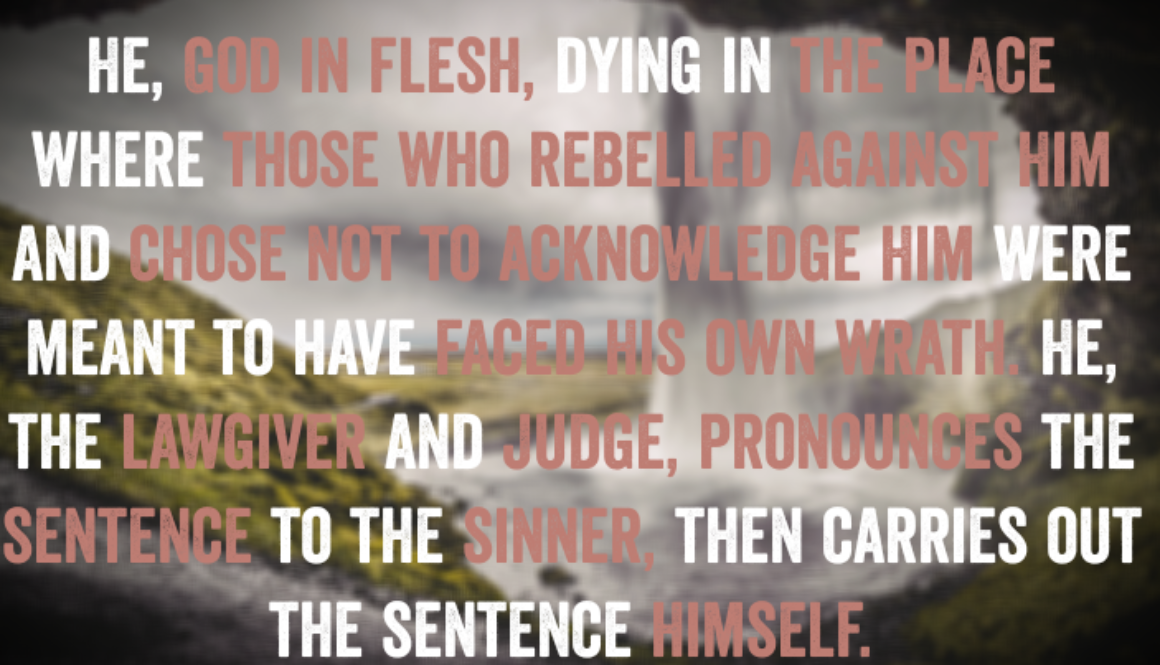Considered Righteous: Justification (#KnowMore Part 6)
Hey hey! Welcome back to the next part of our series #KnowMore. Part 6! Wow, I am glad we have made it this far, and it is my hope that we all are growing in the knowledge of these truths.
The beauty of the Gospel is that it is simple enough for a child to understand, yet has some aspects of it that defy our own logical ways of thinking and predetermined paths of reason. All it takes is faith in God to impart the wisdom to understand and accept the truths as they are. It is difficult trying to fit the round truths and teachings of God into our square shaped ideals and thought patterns; what can be done is to allow God Himself to shape our minds and hearts to then allow these truths to fit into our daily lives.
We looked at regeneration last week, the first of three guest posts in this series. We saw how God takes our hearts that are dead to sin and makes them alive through His Son, Jesus Christ. In no way are we able to quicken ourselves to acceptance; rather, we are given new life to be able to believe in Him and walk in His ways.
Today is the second post, done by a very good friend of mine. He has expressed the need to remain anonymous, and as a gesture of my respect for him, I will keep his identity unknown. It is his desire that God be glorified in his post, and not him as the writer, which is something I really commend him for.
He has been instrumental in my walk with Christ, and has helped me return to God’s word regarding my own sinful state and my continual need for Jesus’s strength. I pray this post on justification will be of great help to you.
Blessed Are Those Whose Lawless Deeds Are Forgiven, And Whose Sins Are Covered; Blessed Is The Man Against Whom The Lord Will Not Count His Sin.
The doctrine of justification has caused tremendous controversy in the history of Christianity. It provoked the Protestant Reformation of the sixteenth century, where the reformers stood for the Biblical truth that justification is by faith alone.
It addresses the most serious plight of fallen human beings-their exposure to the justice of a holy God. The truth of the matter is that God is just, and we are not. David, in Psalms 130:3, prays, “If you, O Lord, should mark iniquity, O Lord, who could stand?”
In fact, none could stand. “None is righteous, no not one…no one seeks after God…no one does good, not even one.” (Romans 3:10-12, ESV). Most of us would think that when we work hard enough to be good people, then we could survive when we appear at the judgement seat of the righteous God. That we could earn our merit before God is a great myth, and the truth is that we are debtors who cannot pay our debts.
The implication is that only another could pay the debt for us. Only God could pay the debt in our stead. Having paid the debt, He would be just, in justifying us. But what really is justification?

We consider this in parts: the nature of justification, the basis of justification, the means of justification and the result of justification.
The nature of justification is that it is an instantaneous legal act, and not an actual impartation or infusion of righteousness. God declares sinners as just before His sight, while yet, they continue to sin. It describes what God declares about the sinner, and not what He does to change the believer (but indeed, He does something to change them). Romans 8:33-34 contrasts “bringing a charge/condemning” with the justifying work of God. Just as bringing a charge is a declaration of judgement according to some standard, so is justification.
Is then God unjust when he declares sinful men righteous in His sight? Certainly not! Paul explains in Romans 3 that He upholds His justice when He declares sinful men righteous.What, then, is the basis of God declaring sinners as just? The answer is that sinful men are “justified by His grace as a gift, through the redemption that is in Christ Jesus, whom God put forward as a propitiation by His blood, to be received by faith.” (Romans 3:24-25 ESV).
This is to say that the righteousness of any man is not from himself. Rather, it is an imputed righteousness from Christ. Moreover, it is to say that Christ took upon Himself the sins of the elect. For the sake of the elect, God “made Him [Christ] to be sin who knew no sin, so that in Him we might become the righteousness of God.” (2 Corinthians 5:21 ESV).
In upholding His justice, God punished for all the sins of the elect, and Christ bore this punishment on Himself, being the propitiation-appeasement of God’s righteous wrath due to sin.

The implication of the basis of justification is that Christ’s work on the cross must be applied, for any man to be justified. By what means are the works of Christ be imputed to anyone? Scripture consistently shows that the works of Christ are received by faith. “For we hold that one is justified by faith apart from works of the law.” (Romans 3:28 ESV). Paul says, “Indeed, I count everything as loss because of the surpassing worth of knowing Christ Jesus my Lord. For his sake I have suffered the loss of all things and count them as rubbish, in order that I may gain Christ, and be found in him, not having a righteousness of our own that comes from anything we do, but that which comes through faith in Christ, the righteousness from God that depends on faith” (Philippians 3:8-9 ESV).
Faith looks outward, to receive the free gifts from heaven, pure and undeserved as they are. “Now to the one who works, his wages are not counted as a gift but as his due.”-truly, the wages of all works is death because they are sinful-“And to the one who does not work but believes in him who justifies the ungodly, his faith is counted as righteousness” (Romans 4:4-5 ESV).
The result of justification will be that the believer will bear fruit. They will seek to obey the master who has bought them at a price, because they love Him. John rightly says that “we have come to know Him if we keep His commandments.” (1 John 2:3 ESV). A believer will not continue to make a practice of sinning, because the God who justifies them also tunes their hearts to love what He loves, and to hate what He hates. It is not to claim that they will be without sin, but that they will continue to grow in sanctification.












